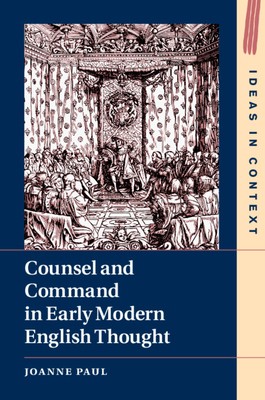
- We will send in 10–14 business days.
- Author: Joanne Paul
- Publisher: Cambridge University Press
- ISBN-10: 1108490174
- ISBN-13: 9781108490177
- Format: 16.3 x 23.1 x 1.8 cm, kieti viršeliai
- Language: English
- SAVE -10% with code: EXTRA
Reviews
Description
While it has often been recognised that counsel formed an essential part of the political discourse in early modern England, the precise role that it occupied in the development of political thinking has remained obscure. This comprehensive and rigorous study of early modern English political counsel establishes the importance of the relationship between political counsel and the discourse of sovereignty. Tracing the changes and evolution of writings on political counsel during the 'monarchy of counsel', from the end of the Wars of the Roses to the end of the English Civil War, Joanne Paul examines English thought in its domestic and transnational context, providing an original account of the relationship between counsel and emerging conceptions of sovereignty. Formed at the conjunction of the history of political thought and English political history, this book grounds textual analysis within the context of court politics, intellectual and patronage networks, and diplomacy.
EXTRA 10 % discount with code: EXTRA
The promotion ends in 23d.11:25:29
The discount code is valid when purchasing from 10 €. Discounts do not stack.
- Author: Joanne Paul
- Publisher: Cambridge University Press
- ISBN-10: 1108490174
- ISBN-13: 9781108490177
- Format: 16.3 x 23.1 x 1.8 cm, kieti viršeliai
- Language: English English
While it has often been recognised that counsel formed an essential part of the political discourse in early modern England, the precise role that it occupied in the development of political thinking has remained obscure. This comprehensive and rigorous study of early modern English political counsel establishes the importance of the relationship between political counsel and the discourse of sovereignty. Tracing the changes and evolution of writings on political counsel during the 'monarchy of counsel', from the end of the Wars of the Roses to the end of the English Civil War, Joanne Paul examines English thought in its domestic and transnational context, providing an original account of the relationship between counsel and emerging conceptions of sovereignty. Formed at the conjunction of the history of political thought and English political history, this book grounds textual analysis within the context of court politics, intellectual and patronage networks, and diplomacy.


Reviews